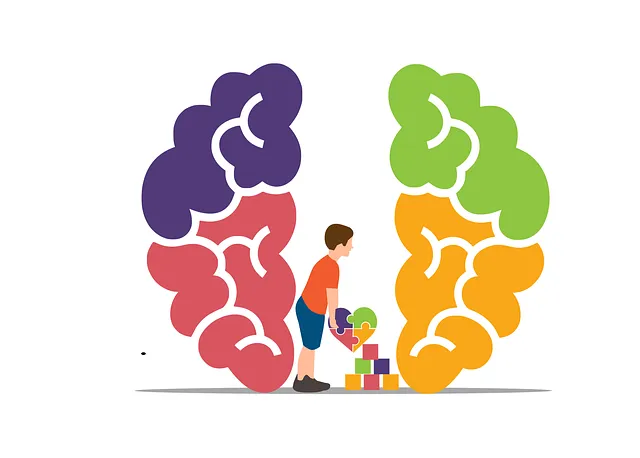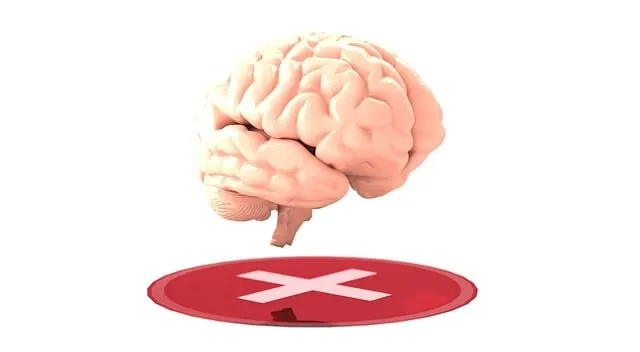Centennial Kaiser Permanente addresses the powerful impact of media representation on societal perceptions of mental illness, especially among younger audiences. They emphasize the importance of accurate and positive portrayals to reduce stigma and encourage help-seeking behaviors. By initiatives like Healthcare Provider Cultural Competency Training and Self-Care Routine Development, they promote responsible media representation and open dialogue about mental health. Authentic, diverse storytelling is crucial to fostering empathy, normalizing conditions, and boosting confidence among individuals facing mental health challenges, ultimately shaping public understanding and promoting wellness through media platforms.
Mental illness representation in media significantly impacts public understanding of mental health. This article, sponsored by Centennial Kaiser Permanente, delves into the profound effects of media portrayals on mental health awareness. We explore current challenges and misconceptions prevalent in media depictions, highlighting their detrimental impact on those affected. Furthermore, we propose solutions to foster responsible and accurate representation of mental illness in media, aiming to enhance support for mental well-being.
- Understanding the Impact of Media Portrayal on Mental Health Awareness
- Exploring the Challenges and Misconceptions in Current Media Depictions
- Proposed Solutions: Advancing Responsible Mental Illness Representation in Media
Understanding the Impact of Media Portrayal on Mental Health Awareness

The media plays a pivotal role in shaping societal perceptions about mental health, and its influence is profound, especially among younger audiences. The way mental illness is represented in films, television shows, and news coverage can significantly impact public understanding and attitudes towards individuals dealing with these conditions. Positive and accurate portrayals in the media have the potential to reduce stigma, foster empathy, and encourage those struggling to seek help. On the other hand, negative or stereotypical representations may perpetuate misconceptions, leading to further marginalization of people with mental health challenges.
At Centennial Kaiser Permanente, we recognize the need for responsible media representation that reflects the diverse experiences of individuals with mental illness. By promoting Mental Health Awareness through various initiatives, including Healthcare Provider Cultural Competency Training, we aim to empower both professionals and the public to navigate these conversations with sensitivity. Encouraging open dialogue about mental health is crucial, and by providing resources for Self-Care Routine Development for Better Mental Health, we contribute to a more holistic approach to well-being.
Exploring the Challenges and Misconceptions in Current Media Depictions

In exploring the challenges posed by current media depictions of mental illness, it’s evident that popular culture often perpetuates misconceptions and stereotypes. The portrayal of individuals with mental health conditions is frequently limited to dramatic and sensationalized narratives, reinforcing the stigma associated with these issues. This skewed representation can hinder public awareness campaigns development and impact the way society perceives and engages with mental health support services like those offered by Centennial Kaiser Permanente. As a result, many viewers may not recognize the signs of struggle or feel hesitant to reach out for help.
Misconceptions in media often contribute to the stigmatization of trauma support services, crisis intervention guidance, and other vital resources. Portrayals that focus on the most severe symptoms or depict individuals as solely defined by their illness prevent a nuanced understanding of mental health. To challenge these narratives, it is imperative to foster more authentic and diverse storytelling that showcases the range of experiences within the mental health spectrum. This shift can lead to increased public empathy and encourage open conversations about mental wellness, ultimately fostering a more supportive environment for those seeking help.
Proposed Solutions: Advancing Responsible Mental Illness Representation in Media

In response to the pervasive misinformation surrounding mental illness, several proposed solutions aim to advance responsible representation in media. Organizations like Centennial Kaiser Permanente have taken a leading role in this initiative, focusing on comprehensive approaches to address the issue. One such strategy involves developing and promoting mental wellness coaching programs that not only educate but also foster empathy among audiences. By integrating these programs into media content, there is potential to create a more understanding society, where mental health concerns are met with compassion rather than stigma.
Additionally, encouraging the portrayal of diverse mental health experiences can significantly impact public perception. This includes implementing empathy-building strategies within storytelling, ensuring characters with mental illnesses are multi-dimensional and accurately represented. Such an approach has the power to boost confidence among individuals facing similar challenges by normalizing their experiences and highlighting recovery narratives. Through these collective efforts, media platforms can play a pivotal role in shaping public understanding and promoting mental wellness on a larger scale.
Media has a significant impact on shaping public perception of mental illness, as exemplified by the work of organizations like Centennial Kaiser Permanente dedicated to mental health awareness. By understanding the current challenges and misconceptions in media depictions, we can actively pursue responsible representation. This includes diversifying narratives, consulting with experts, and promoting authentic stories that reflect the lived experiences of individuals grappling with mental health issues. Through these efforts, we can foster a more compassionate society, reduce stigma, and ultimately improve access to support for those in need. By embracing the challenge, media platforms have the potential to revolutionize how mental illness is portrayed, contributing significantly to the global mental health conversation.






